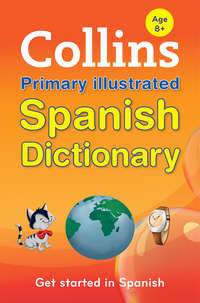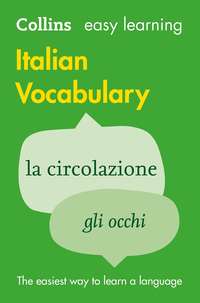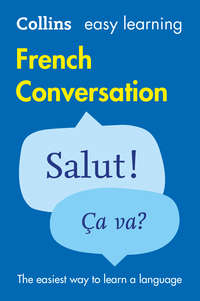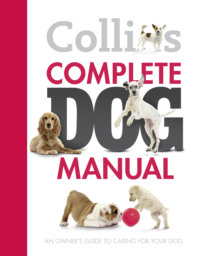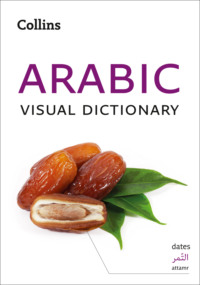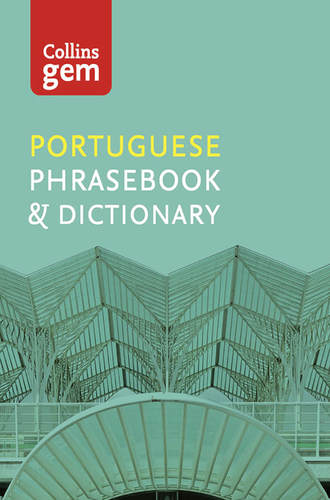
Полная версия
Collins Gem

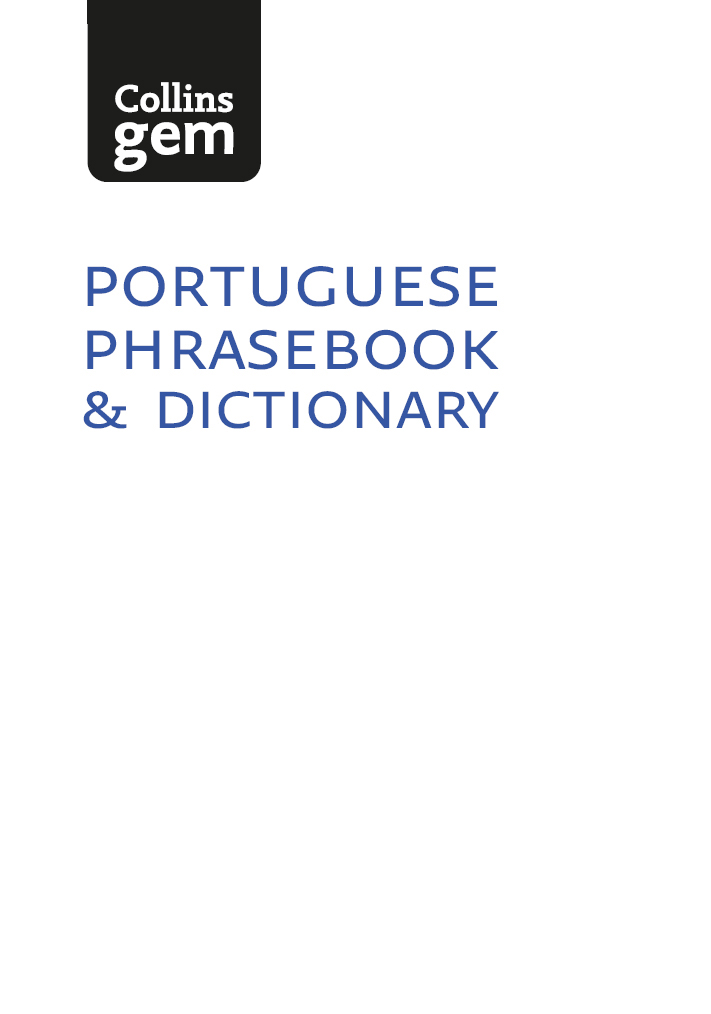
Copyright
HarperCollins Publishers
Westerhill Road
Bishopbriggs
Glasgow G64 2QT
Fourth Edition 2016
© HarperCollins Publishers 1993, 2007, 2010, 2016
Source ISBN: 9780008135935
Ebook Edition © March 2016 ISBN: 9780008163495
Version: 2016-03-01
Collins® and Collins Gem® are registered trademarks of HarperCollins Publishers Limited
www.collinsdictionary.com
All rights reserved under International and Pan-American Copyright Conventions. By payment of the required fees, you have been granted the nonexclusive, nontransferable right to access and read the text of this e-book on-screen. No part of this text may be reproduced, transmitted, downloaded, decompiled, reverse-engineered, or stored in or introduced into any information storage and retrieval system, in any form or by any means, whether electronic or mechanical, now known or hereafter invented, without the express written permission of HarperCollins e-books.
Entered words that we have reason to believe constitute trademarks have been designated as such. However, neither the presence nor absence of such designation should be regarded as affecting the legal status of any trademark.
The contents of this publication are believed correct at the time of creation. Nevertheless the Publisher can accept no responsibility for errors or omissions, changes in the detail given or for any expense or loss thereby caused.
HarperCollins does not warrant that any website mentioned in this title will be provided uninterrupted, that any website will be error free, that defects will be corrected, or that the website or the server that makes it available are free of viruses or bugs. For full terms and conditions please refer to the site terms provided on the website.
Acknowledgements
We would like to thank those authors and publishers who kindly gave permission for copyright material to be used in the Collins Corpus. We would also like to thank Times Newspapers Ltd for providing valuable data.
If you would like to comment on any aspect of this book, please contact us at the given address or online.
E-mail: dictionaries@harpercollins.co.uk


Editor
Holly Tarbet
Contributors
Wendy Graça
Vanda Meneses Santos
David White
For the Publisher
Gerry Breslin
Janice McNeillie
Helen Newstead
Using your phrasebook
Whether you’re on holiday or on business, your Collins Gem Phrasebook and Dictionary is designed to help you locate the exact phrase you need, when you need it. You’ll also gain the confidence to go beyond what is in the book, as you can adapt the phrases by using the dictionary section to substitute your own words.
The Gem Phrasebook and Dictionary includes:
• Over 60 topics arranged thematically, so that you can easily find an expression to suit the situation
• Simple pronunciation which accompanies each word and phrase, to make sure you are understood when speaking aloud
• Tips to safeguard against any cultural faux pas, providing the essential dos and don’ts of local customs or etiquette
• A basic grammar section which will help you to build on your phrases
• FACE TO FACE dialogue sections to give you a flavour of what to expect from a real conversation
• A handy map of the country which shows the major cities and how to pronounce them
• YOU MAY HEAR sections for common announcements and messages, so that you don’t miss important information when out and about
• A user-friendly 3000 word dictionary to ensure you’ll never be stuck for something to say
• A short chapter of LIFELINE phrases for quick reference. These basic words and phrases will be essential to your time abroad
Before you jet off, it’s worth spending time looking through the topics to see what is covered and becoming familiar with pronunciation.
Contents
Copyright
Acknowledgements
Using your phrasebook
Pronouncing Portuguese
Top ten tips
Talking to people
Hello/goodbye, yes/no
Key phrases
Signs and notices
Polite expressions
Celebrations
Making friends
Work
Weather
Getting around
Asking the way
Bus and coach
Metro
Train
Taxi
Boat and ferry
Air travel
Customs control
Car hire
Driving
Breakdown
Car parts
Road signs
Staying somewhere
Hotel (booking)
Hotel desk
Camping
Self-catering
Shopping
Shopping phrases
Shops
Food (general)
Food (fruit and veg)
Clothes
Clothes (articles)
Maps and guides
Post office
Technology
Leisure
Sightseeing and tourist office
Entertainment
Nightlife
Out and about
Music
Sport
Communications
Telephone and mobile
Text messaging
Internet
Practicalities
Money
Paying
Luggage
Complaints
Problems
Emergencies
Health
Pharmacy
Doctor
Dentist
Eating out
Eating places
In a bar/café
Reading the menu
In a restaurant
Dietary requirements
Wines and spirits
Menu reader
Reference
Alphabet
Measurements and quantities
Numbers
Days and months
Time
Time phrases
Public holidays
Phonetic map
Grammar
Dictionary
English – PortugueseA – CD – FG – IJ – LM – OP – RS – UV – ZPortuguese – EnglishA – CD – FG – IJ – LM – OP – RS – UV – ZLIFELINE words and phrases
About the Publisher
Pronouncing Portuguese
Portuguese is much easier to read than to speak. However, the pronunciation guide used in this book gives as accurate a guide as possible to the sounds of the language. The syllable to be stressed is printed in bold. Note that in conversation words tend to run together.
Vowels (a, e, i, o, u)
vowelexamplepronunciationsounds likeasacosah-kooas in fatherfamafumuhhumficafeekuhabouteterraterr-uhterrorenormeeh-normehenquireespecialeesh-pessyahlhappydeduhaboutificafeekuhpolicemédicomedeekoohappyocobrakoh-bruhallhomemomayñau pairvasovah-zoobootuluvasloovushbootNotes:
The article a sounds like uh (as in the), unless stressed, i.e. à (ah).
e can sound like ay, e.g. fecho (fayshoo), but tends to be silent at the end of words, e.g. pode (pod) unless stressed, e.g. bebé (be-be). The word e (meaning and) always sounds like ee.
The article o and the letter o at the end of words always sound like oo.
Vowel combinations
aimaismysheipeixepayshoicoisakoy-zuhououtrooh-trooNasal vowels
Vowels with a tilde ~ or followed by m or n in the same syllable should be pronounced nasally (letting air out through the nose as well as the mouth), as in French. We have represented this sound in the pronunciation by ñ, e.g.
tem = tayñcom = koñum = ooñpão = powñmanhã = mun-yañpõe = poyñOther letters
examplepronunciationsounds likeçserviçoserveesoochcháshahggelozhay-looas in measurehalways silentjlojalozhuhas in measureIhmulhermool-yehrnhtenhoten-yoor/rralways rolled; ‘r’ at beginning of word and double ‘rr’ are forceful and guttural (similar to French ‘r’)s(between vowels) coisakoy-zuh(after vowel and at end of word) está lápisshtalah-peeshxcaixaky-shuhz(at end of word) fazfashTop ten tips
1 Use the formal form of address until you are asked to use the familiar form. Wait until you are invited to use first names.
2 There is no official religion, but the population predominantly identifies as Roman Catholic, this being stronger in the north than in the south.
3 It is a legal requirement in Portugal that everyone carries photographic proof of identity at all times.
4 Portuguese people are very proud of their culture, which is different from that of Spain!
5 To hire a car you often have to be at least 21, depending on the car hire company and on the vehicle. Often your driving licence must have been issued at least one year before, and if you are under 25 there may be an extra fee to pay.
6 Portuguese people have a sweet tooth; try some of their specialities such as Toucinho do Céu (heaven’s bacon) and Barriga de Freira (nun’s belly).
7 Most shopping centres are open 7 days a week from 10 a.m. to 11 p.m. or in some cases until midnight.
8 There are more than one thousand recipes to cook cod; one of the most famous is Bacalhau à Brás.
9 In restaurants, you have to ask for the bill; it’s considered impolite of the waiter to bring the bill if you haven’t asked for it.
10 Bars and restaurants tend to close on Sundays, except in busy areas such as Lisbon and the Algarve.
Talking to people
Hello/goodbye, yes/no
You will find that Portuguese people are quite formal and will appreciate it if you take the same approach to them as they take towards you.
PleasePor favor/Faz favor poor fuh-vor/fash fuh-vorThank youObrigado(a) oh-breegah-doo(-duh)Thanks very muchMuito obrigado(a)mweeñto oh-breegah-doo(-duh)You’re welcome!De nada! duh nah-duh!YesSim seeñNoNão nowñOKEstá bem shta bayñSir/MrSenhor/Sr. sun-yorMadam/Mrs/MsSenhora/Sra. sun-yoruhMissMenina muh-neenuhHello/HiOlá oh-lahGoodbye/ByeAdeus aday-ooshSee you laterAté logouh-te logooSee you tomorrowAté amanhã uh-te amun-yañGood morningBom dia boñ dee-uhGood afternoon/eveningBoa tarde boh-uh tardGoodnightBoa noite boh-uh noytExcuse me! (to catch attention)Por favor! poor fuh-vor!Sorry!Desculpe!dushkoolp!How are you?Como está? koh-moo shta?Fine, thanksBem, obrigado(a) bayñ, oh-breegah-doo(-duh)And you?E você? ee voh-say?I don’t understandNão compreendo nowñ koñpree-endooDo you speak English?Fala inglês?fah-luh eeñglaysh?Key phrases
The easiest way to ask for something is by naming what you want and adding por favor (poor fuh-vor).
the (masculine)o/os oo/ooshglass/glasseso copo/os copos oo kopoo/oosh kopoosha/one glassum copo ooñ kopoothe (feminine)a/as uh/ushkey/keysa chave/as chaves uh shahv/ush shah-vusha/one keyuma chaveoomuh shahvmy (masculine)o meu oo mayoo(feminine)a minha uh meen-yuhmy glasso meu copo oo mayoo kopoomy keya minha chave uh meen-yuh shahvhis/her/its/youro seu/a sua oo sayoo/uh soo-uhhis/her/its/your glasso seu copooo sayoo kopoohis/her/its/your keya sua chave uh soo-uh shahvDo you have…?Tem…? tayñ…?Do you have a room?Tem um quarto? tayñ ooñ kwartoo?Do you have any milk?Tem leite? tayñ layt?Do you have stamps?Tem selos? tayñ seloosh?I’d like…Queria…kree-uh…I’d like an ice creamQueria um geladokree-uh ooñ zhuh-lah-dooI’d like to book a tableQueria reservar uma mesakree-uh ruh-zervar oomuh may-zuhI’d like pastaQueria massakree-uh massuhWe’d like…Queríamos…kree-uhmoosh…We’d like two cakesQueríamos dois boloskree-uhmoosh doysh bohlooshMore…Mais… mysh…More breadMais pão mysh powñMore waterMais água mysh ahg-wuhAnother…Outro(a)…oh-troo(truh)…Another milky coffeeOutro galãooh-troo galowñAnother lagerOutra cervejaoh-truh servay-zhuhHow much is it?Quanto é?kwuñtoo e?How much does it cost?Quanto custa?kwuñtoo kooshtuh?largegrande gruñdsmallpequeno puh-kaynoowithcom koñwithoutsem sayñWhere is…?Onde é…?onduh e…?Where are…?Onde são/estão…?onduh sowñ/shtowñ…?Where is the toilet?Onde é a casa de banho?onduh e uh kah-zuh duh bun-yoo?Where are the children?Onde estão as crianças?onduh shtowñ ush kree-uñsush?How do I get…?Como se vai…?koh-moo suh vy…?to the stationpara a estaçãoparuh a shtuh-sowñto the centreao centro ow sentrooThere is/are…Há… a…There isn’t/aren’t any…Não há… nowñ a…When…?Quando…?kwuñdoo…?At what time is…?A que horas é…? uh kee oruhsh e…?todayhoje ohzhtomorrowamanhã amun-yañCan I…?Posso…?possoo…?Can I smoke?Posso fumar?possoo foomar?Can I pay?Posso pagar?possoo puh-gar?How does this work?Como funciona?koh-moo foonss-yonuh?What does this mean?Que quer dizer isto? kuh kayr deezehr eeshtoo?Signs and notices
homensgentlemensenhorasladiesabertoopenfechadoclosedágua para beber/água potáveldrinking waterprimeiros socorrosfirst aidcheio/lotadofullliquidação totalclosing-down salecaixacash deskempurrepushpuxepulllavabos/sanitáriostoiletslivrevacant/freeocupadoengaged/occupiednão funcionaout of orderavariadoout of orderpara alugarfor hire/rentpara vendafor salesaldossalescavebasementrés do chãoground floorentradaentrancebilheteiraticket officeequitaçãohorse ridingvagas/vagovacancies/vacantbanheirolifeguard (beach)casas de banhobathroomsdegustaçãotastingpagar na caixapay at cash deskdepósito de bagagensleft luggagequentehotproibidoforbidden/no…não mexer/não tocardo not touchcompletono vacanciesvestiárioschanging roomsimpedidoengageddescontosreductionsinformaçõesinformationperigodangerfumadoressmokingPolite expressions
There are three forms of address in Portuguese: formal (o senhor/a senhora), semi-formal (você – for both sexes) and informal (tu – for both sexes). Always stick to the formal when addressing older people, or the semi-formal for people of your own age and status, until you are invited to use the informal tu.
The meal was deliciousA refeição estava deliciosa uh ruhfay-sowñ shtahvuh duhlees-yohzuhThank you very muchMuito obrigado(a)mweeñtoo oh-breegah-doo(-duh)This is a gift for youIsto é um presente para si eeshtoo e ooñ pruh-zeñt paruh seePleased to meet youMuito prazer mweeñtoo pruh-zehrThis is my husbandEste é o meu marido esht e oo mayoo muhreedooThis is my wifeEsta é a minha mulher eshtuh e uh meen-yuh mool-yehrEnjoy your holiday!Boas férias! boh-ush fehr-yush!Celebrations
Merry Christmas!Bom Natal! boñ nuh-tahl!Happy New Year!Feliz Ano Novo! fuh-leesh ah-noo noh-voo!Happy birthday!Feliz aniversário! fuh-leesh aneever-sar-yoo!Have a good trip!Muito boa viagem! mweeñtoo boh-uh vee-ah-zhayñ!Making friends
In this section we have used the familiar form tu for the questions. Tu is widely used between young people soon after being introduced, and between close friends and relatives of any age.
FACE TO FACE
Como te chamas?
koh-moo tuh shah-mush?
What’s your name?
Chamo-me…
shah-moo-muh…
My name is…
De onde és?
duh oñduh esh?
Where are you from?
Sou inglês/inglesa
soh eeñglaysh/eeñglayzuh
I’m English (masc./fem.)
Muito prazer
mweeñto pruh-zehr
Pleased to meet you
How old are you?Quantos anos tens? kwuñtoosh ah-noosh tayñsh?I’m … years oldTenho … anosten-yoo … ah-nooshWhere do you live?Onde vives?oñduh veevush?Where do you live? (plural)Onde vivem?oñduh veevayñ?I live in LondonVivo em Londresvee-voo ayñ loñdrushI’m still studyingSou estudante soh shtooduñtI workTrabalho truh-bahl-yooI’m retiredSou reformado(a) soh refoormah-doo(uh)I’m…Sou… soh…England/EnglishInglaterra/inglês (inglesa) eeñ-gluh-terr-uh/eeñglaysh (eeñglayzuh)Scotland/ScottishEscócia/escocês (escocesa) eesh-koss-yuh/eesh-kosaysh (eesh-kosay-zuh)Wales/WelshGales/galês (galesa)galeesh/galaysh (galayzuh)Ireland/IrishIrlanda/irlandês (irlandesa) eerluñduh/eerluñdaysh (eerluñday-zuh)USA/AmericanAmérica/americano(a) uhmehreekuh/uhmehreekuhnoo (uh)Australia/AustralianAustrália/australiano(a) owstrahleeya/owstrahleeyahnoo(uh)singlesolteiro(a) soltay-roo(uh)marriedcasado(a) kazah-doo(uh)divorceddivorciado(a) deevoors-yah-doo(uh)I have…Tenho…ten-yoo…a boyfriendnamorado nuh-moo-rah-dooa girlfriendnamorada nuh-moo-rah-duha partnercompanheiro(a) koñpun-yay-roo(uh)I have … childrenTenho … filhos ten-yoo … feel-yooshI have no childrenNão tenho filhos nowñ ten-yoo feel-yooshI’m here…Estou aqui… shtoh uh-kee…on holidayde férias duh fehr-yushfor workpor motivo de trabalho poor mootee-voo duh truh-bahl-yoo

